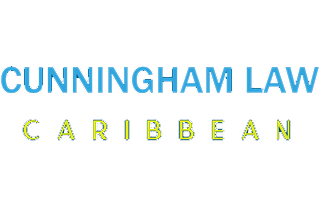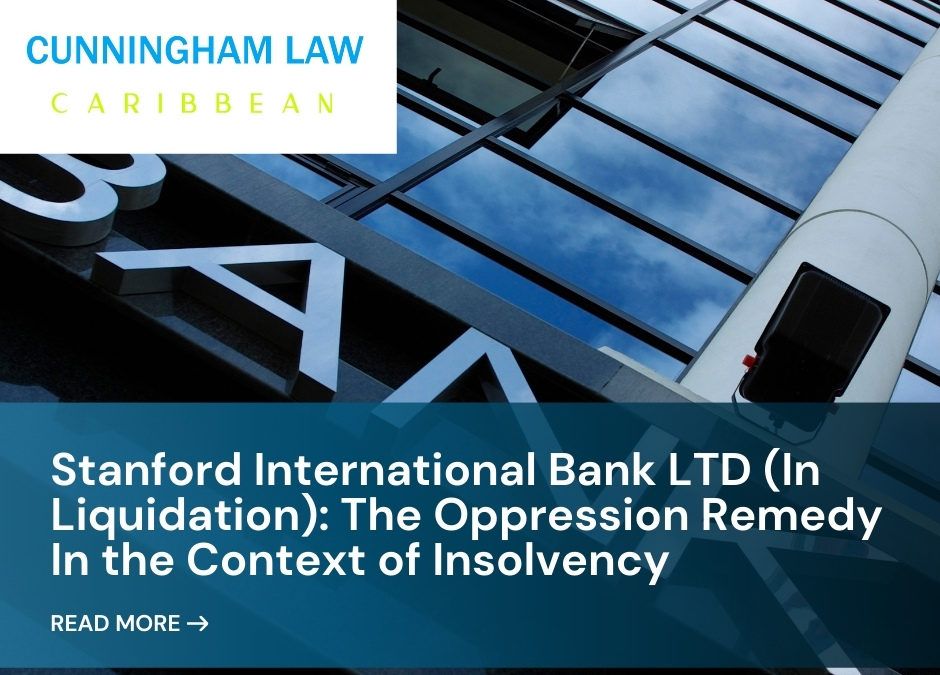The Caribbean is no stranger to the tragedy of Ponzi schemes of varying sizes and nature, often times masking as legitimate and regulated entities. This was the story of Stanford International Bank (“SIB”). The case titled, In the matter of Stanford International Bank Ltd (In Liquidation) (Acting by and through its Joint Liquidators Mark McDonald and Hugh Dickson) (Antigua and Barbuda)1 may be described as a perfect storm.
Here, the Privy Council was tasked with addressing the rights of creditors under the laws of Antigua and Barbuda, who suffered loss by investing in an Antiguan bank, which later turned out to be nothing but a Ponzi scheme. Of significant importance was the challenge presented in attempting to do justice to those creditors, where there were no empowering legislative or common law authority for the redistribution of the proceeds of the liquidation to favour those creditors who would not have been paid at all, as against those who were partly paid prior to the insolvent liquidation.
The ingenuity of the arguments presented gave rise to a consideration of the oppression remedy within the context of an insolvency and a possible expansion to the definition of ‘Complainant’, in terms of whether a liquidator can apply for an order to remedy oppression. This latter point clearly stirred the pot, leaving the Judges with a 3:2 split on the issue.
In this article, we will examine the respective treatment afforded to the use of the oppression remedy, the pari passu principle and the limitations as articulated by the Privy Council.
FACTS
In 1990, SIB was incorporated in Antigua under the International Business Corporations Act (“the IBC Act”) and is believed to have been operated from inception as a Ponzi scheme. SIB’s operating model was to seek investments by selling certificates of deposits, promising repayment of capital together with contractual interest upon maturity. This created a relationship of debtor and unsecured creditors as between SIB and its depositors.
In February 2009 SIB was placed in receivership and its operations suspended by the Antiguan Financial Services Regulatory Commission. However, before this occurrence and going back to around September 2008, there was a run on the bank by depositors who sought to recover capital and interest causing up to US$1.3 billion of withdrawals prior to the receivership. By April 2009 the receivership was converted into a liquidation.
The liquidators applied to the court for directions in October 2013 and subsequently for the appointment of the first respondent as amicus curiae to represent the interests of creditors who may be disadvantaged by the claims which the liquidators sought the court’s permission to pursue. In summary, the liquidators wished to pursue the following claims:
i. Against depositors, without regard for any limitation of time, who received full pay out of their capital and contractual interest;
ii. Against depositors who received payments during the run on the bank in September 2008 until it ceased operations, on the basis that such payments were “wrongful preferences”; and
iii. To re-adjust the claims of depositors within the insolvent liquidation, to in effect disallow the claims of partly paid depositors in favour of those who had not been paid at all.
All these claims were presented by the liquidators on the basis of being permissible as part of the oppression relief under the IBC Act, the oppressive or unfairly prejudicial conduct being the operation of SIB as a Ponzi scheme to the detriment of its depositors generally.
At first instance, the court found that the oppression remedy under the IBC Act was available and the liquidators were “proper persons” to make the application but nonetheless denied the liquidators permission to pursue claims (a) and (b). The court reasoned with respect to claims (a) and (b) that depositors who received payment of all or part of their contractual entitlements, had a reasonable expectation to hold on to them, making it common law was never argued on appeal so that the relief sought by the liquidators was entirely refused.
By way of further appeal to the Privy Council, the Board’s opinion was sought on the following issues:
i. Whether the oppression relief is available at all in respect of the affairs of an IBC in liquidation;
ii. Whether the oppression relief provides a realistic basis for a claim by the liquidators to recover, for the benefit of the creditors generally, amounts paid by SIB to depositor creditors before its liquidation (“claw-back claims”); and
iii. Whether the oppression relief provides a basis for the liquidators to re-adjust the claims of creditors in the liquidation so as to favour those depositors who have not been paid at all as against those partly paid prior to liquidation, otherwise than as would be achieved by a pari passu distribution in accordance with the insolvency scheme applicable to SIB.
HOLDING OF THE PRIVY COUNCIL
In dismissing the appeal, the Privy Council concluded:
- By a 3:2 majority, that the oppression relief is not available to an IBC in liquidation;
- Unanimously, that if the oppression relief had been available in principle, the judge was right to conclude that claw-back claims should not be pursued; and
- Unanimously, that re-adjustment of creditors’ claims in the liquidation should not have been permitted, even if the oppression relief was available in principle.
THE LEGAL FRAMEWORK
The perfect storm of this case really ensues from the legal framework. This appeal concerned the interrelationship between the applicable law on insolvency and that on oppression/unfair prejudice. The first arises in the insolvent liquidation of a corporate entity and the second is a regime which enables the court to make certain discretionary remedies for dealing with oppressive or unfairly prejudicial conduct.
A feature of insolvency schemes generally is the application of a system of rules based on the pari passu principle. It means that a liquidator only has recourse to the assets of the company still in its possession as at the cut-off date (the date on which the company enters into liquidation) and these assets must be distributed equally to all creditors (in the same priority class) who present a successful claim to the liquidators.
The pari passu principle does not have regard to payments made prior to the cut-off date, the effect therefore being that a partly paid creditor prior to the liquidation will share in the spoils equally as those creditors who were never paid and naturally, those who were never paid before the liquidation still stand to lose more in comparison. Exceptions to the pari passu principle are usually carved out by statutory provisions
which allow for the avoidance or unwinding of certain pre cut-off date transactions such as wrongful preferences or transactions at an undervalue, subject to such defences as bona fide purchaser/transaction without notice.
The general Antiguan insolvency scheme is a mixture of statutory and judge-made rules. The Companies Act in Antigua contains a provision dealing with fraudulent preference, which is then cross-referenced with the Bankruptcy Act and the relevant provision on fraudulent preference contained therein would potentially allow for the unwinding of transactions up to six months, pre the cut-off date.
Another layer to this interplay, however, is the fact that Antigua has a distinct statutory regime governing domestic or external companies, separate from that governing IBCs. The former is governed by the Companies Act and the latter by the IBC Act. No statutory part of the general Antiguan insolvency scheme is applicable to an IBC, since the IBC Act expressly dis-applies the Companies Act in relation to IBCs. Instead, it sets out its own procedures to deal with the insolvent winding-up of an IBC but strangely enough there is no provision for the avoidance of fraudulent or wrongful preferences and the priorities of claims in an IBC winding up, expressly apply the pari passu principle among all the claimants of the same class.
This is why the liquidators attempted to have recourse to the provision under the IBC Act for restraining oppression. Antigua is among those jurisdictions whose definition of ‘Complainant’ includes the provision, “any other person who, in the discretion of the court, is a proper person to make an application” 2 for the oppression remedy.
Though the definition of complainant is arguably broad enough to possibly contemplate the inclusion of a liquidator, the “any other person” basis on which any such inclusion is examinable is still based on the court’s discretionary power, a power which remains grounded on equitable principles and the exercise of which should not be engaged to subvert the ordinary application of a prescribed insolvency scheme at law.
REASONING OF THE MAJORITY ON USE OF THE OPPRESSION REMEDY
Entry into insolvent liquidation is a watershed event for an IBC. Prior to that cut-off date the company’s affairs are entrusted to its directors, officers and to some extent shareholders in general meeting. Those responsible for the control of the company’s affairs are expected to act fairly in relation to the company’s stakeholders, that is, not oppressively or unfairly prejudicially, or in a way which unfairly disregards their interests. The oppression relief in the IBC Act provides a remedy to a wide body of the company’s stakeholders for a breach of those obligations by those in control of the company’s affairs and gives the court broad discretionary powers to rectify the matters complained of.
In sharp contrast, following entry into insolvent liquidation, the affairs and property of the company are taken out of the hands of the aforementioned persons and entrusted to a court-appointed liquidator. The liquidator takes the company’s property and rights as he finds them as at the cut- off date and can only take steps to augment the company’s property to the extent that the relevant insolvency scheme permits him to do so, for example by re-opening prior transactions.
There is also the potential of risking the wide availability of the oppression relief in liquidation proceedings, if the only constraint on the use of the remedy in the context of liquidation is to simply satisfy the court of some relevant oppressive or unfairly prejudicial conduct. This is so because it is a commonplace that the conduct of a company’s affairs which leads to its insolvent liquidation treats one or more groups of its stakeholders, and unsecured creditors in particular, unfairly.
The two frameworks serve different objectives. The insolvency scheme serves a recognised public interest, whilst the oppression relief is more concerned with justice and equity as between stakeholders in the company’s affairs. The better view is that once a company has crossed the threshold into insolvent liquidation, the framework for granting relief from oppression is wholly displaced.
Suffice to say, the IBC Act should be amended to include provision for fraudulent or wrongful preferences.
If you wish to contact Mr. Cunningham you may do so at: rushaine.cunningham@cunninghamlc.com

